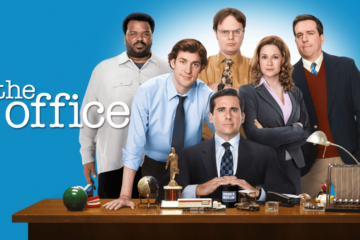The Office S01 Episode 3 – Practice

“The Office” is a hilarious TV series set in the Scranton branch of Dunder Mifflin Paper Company. It follows the antics of quirky characters like Michael Scott, Jim, Pam, and Dwight. With its mockumentary style and relatable workplace humor, the show has become a cultural phenomenon, making us laugh and feel connected to the absurdity of office life. From Jim and Pam’s romance to Dwight’s beet obsession, “The Office” is a friendly and unforgettable comedy that continues to charm audiences worldwide.
Links for The Office
All Vocabulary Post for The Office
Here are some potentially unknown vocabulary words from the The Office Season 1 Episode 3 and their explanations:
- Stat: In this context, “stat” is a medical term that means immediately or as quickly as possible. It is often used in hospitals to indicate an urgent request or action.
- Information superhighway: This term refers to the internet or the digital network of information. It was a popular term in the 1990s when the internet was rapidly expanding and becoming more accessible.
- Sacred: Something that is sacred is considered holy, special, or of great importance. In this context, the character is using it metaphorically to describe the care and support they provide to their workers.
- Acupuncture: Acupuncture is a traditional Chinese medicine practice that involves inserting thin needles into specific points on the body to alleviate pain or treat various conditions.
- Therapeutic massage: It refers to a massage technique that is aimed at promoting relaxation, reducing stress, and improving overall well-being. It can also be used to treat specific musculoskeletal issues or injuries.
- Provider: In the context of health care, a provider refers to a person or organization that offers medical services, such as doctors, hospitals, or clinics.
- Cheapest plan: The phrase “cheapest plan” refers to the health insurance plan that has the lowest cost in terms of premiums, deductibles, and out-of-pocket expenses. It may offer less coverage or have more limitations compared to other plans.
- Suicide mission: This phrase is used figuratively to describe a task or assignment that is extremely challenging or risky, often with a high likelihood of failure or negative consequences.
- Parameters: Parameters are the limits, boundaries, or conditions within which something is defined or operates. In this case, it refers to the specific guidelines or criteria for choosing a health care plan.

Part 2 of Vocabulary List
- Slash benefits: To “slash benefits” means to significantly reduce or cut down on the benefits provided by an organization, such as health insurance, retirement plans, or other perks.
- Coddling: Coddling means excessively pampering or indulging someone, often by being overprotective or overly cautious. In this context, it refers to a management style that avoids challenging or holding employees accountable.
- Dental and vision: These terms refer to dental care and vision care, respectively. Dental care involves oral health and treatment of teeth and gums, while vision care focuses on eye health and corrective measures like glasses or contact lenses.
- Deductible: A deductible is an amount of money that an insured person must pay out of pocket before their insurance coverage begins. It is a cost-sharing mechanism between the insured individual and the insurance provider.
- Comped: “Comped” is a slang term short for “compensated” or “complimentary.” In this context, it means that a hotel room or other service is provided free of charge.
- Pile of chips: In the context of a casino, “pile of chips” refers to a stack of gambling chips or tokens used for betting in various games.
- Improv: Short for improvisation, it refers to the act of creating or performing spontaneously without prior planning or scripting. It is often used in comedy or theater.
- Beep: Here the character is pretending to receive a phone call or an interruption to avoid further conversation or confrontation.
- Incommunicado: It means being unable or unwilling to communicate or be reached. In this case, the character wants to convey that they are not available
- Orifice: An orifice is an opening or hole, typically referring to a bodily opening, such as the mouth, nostrils, or anus. In this context, it is used humorously to refer to the office.

0 Comments